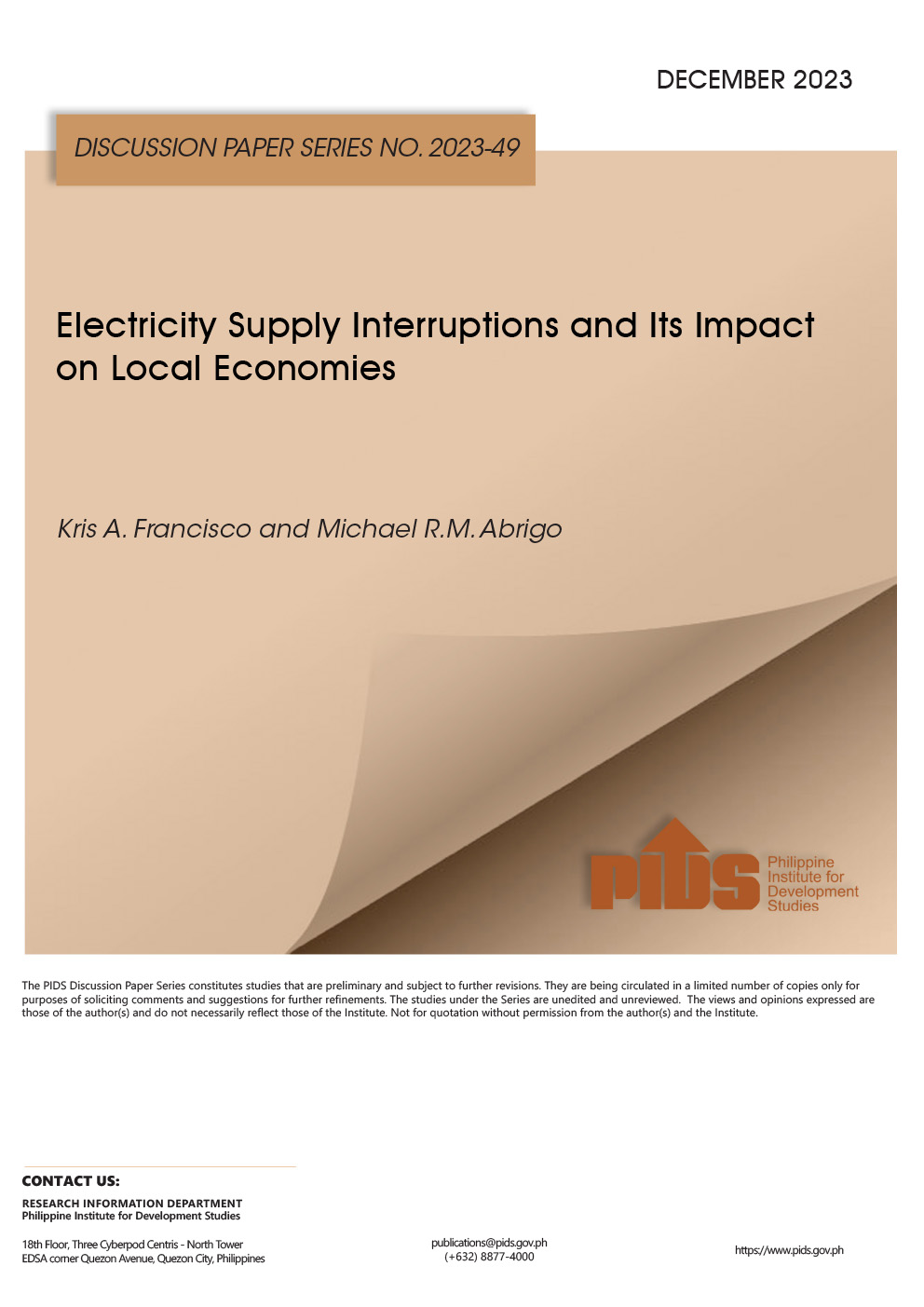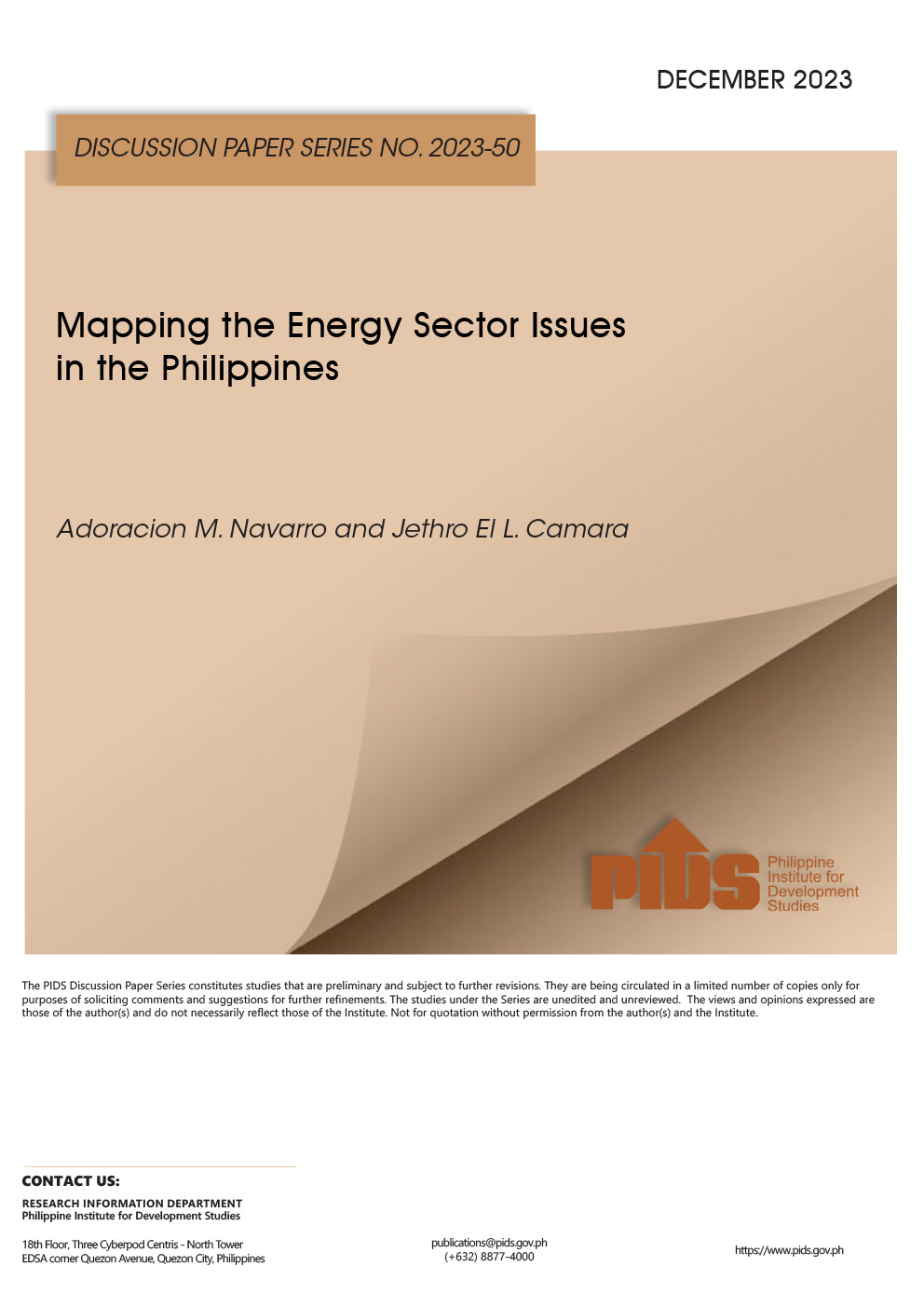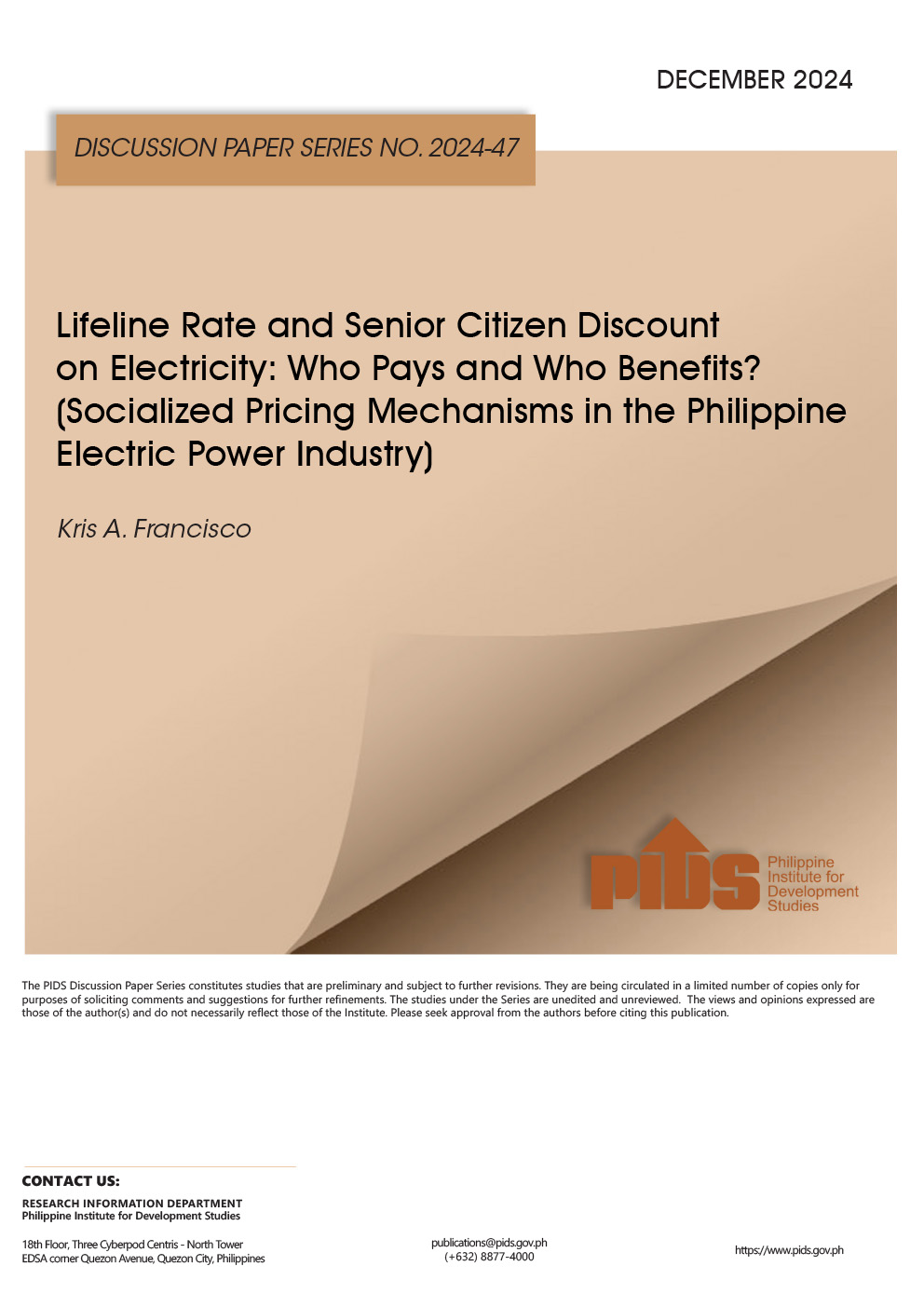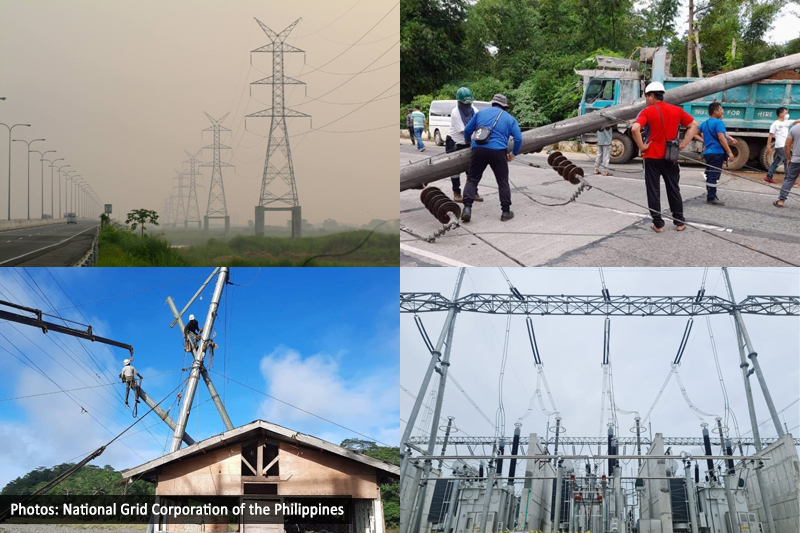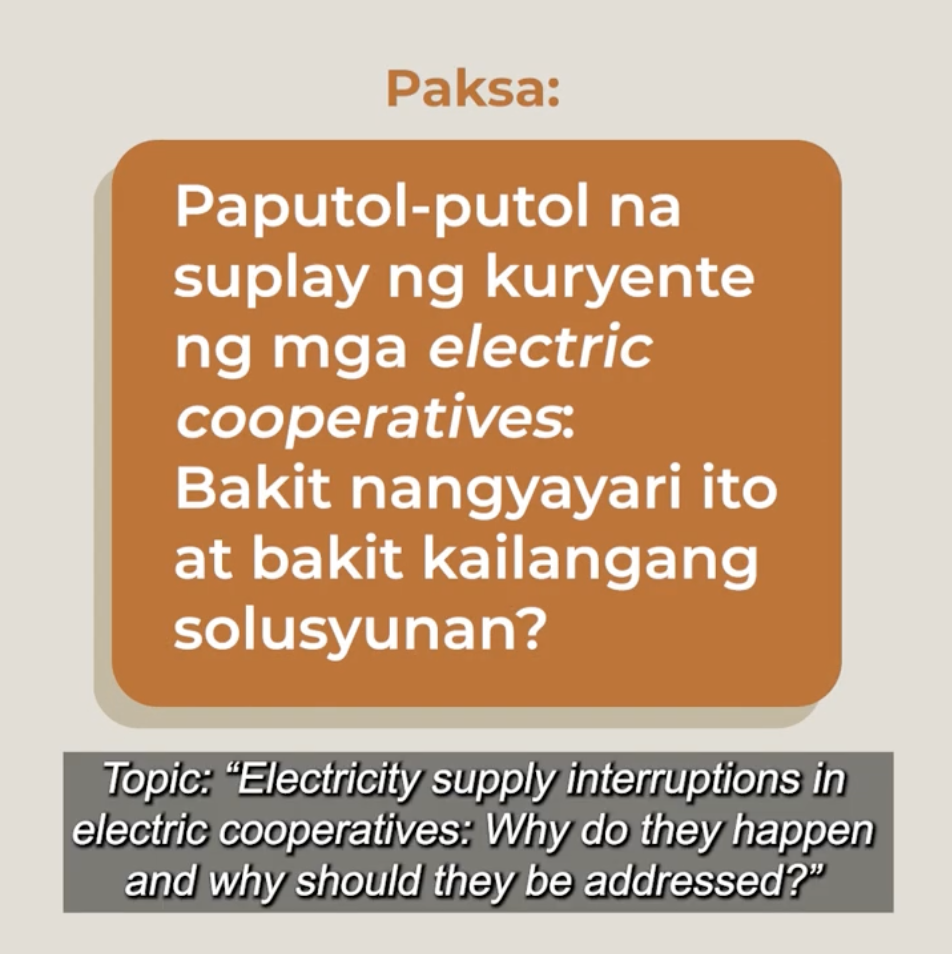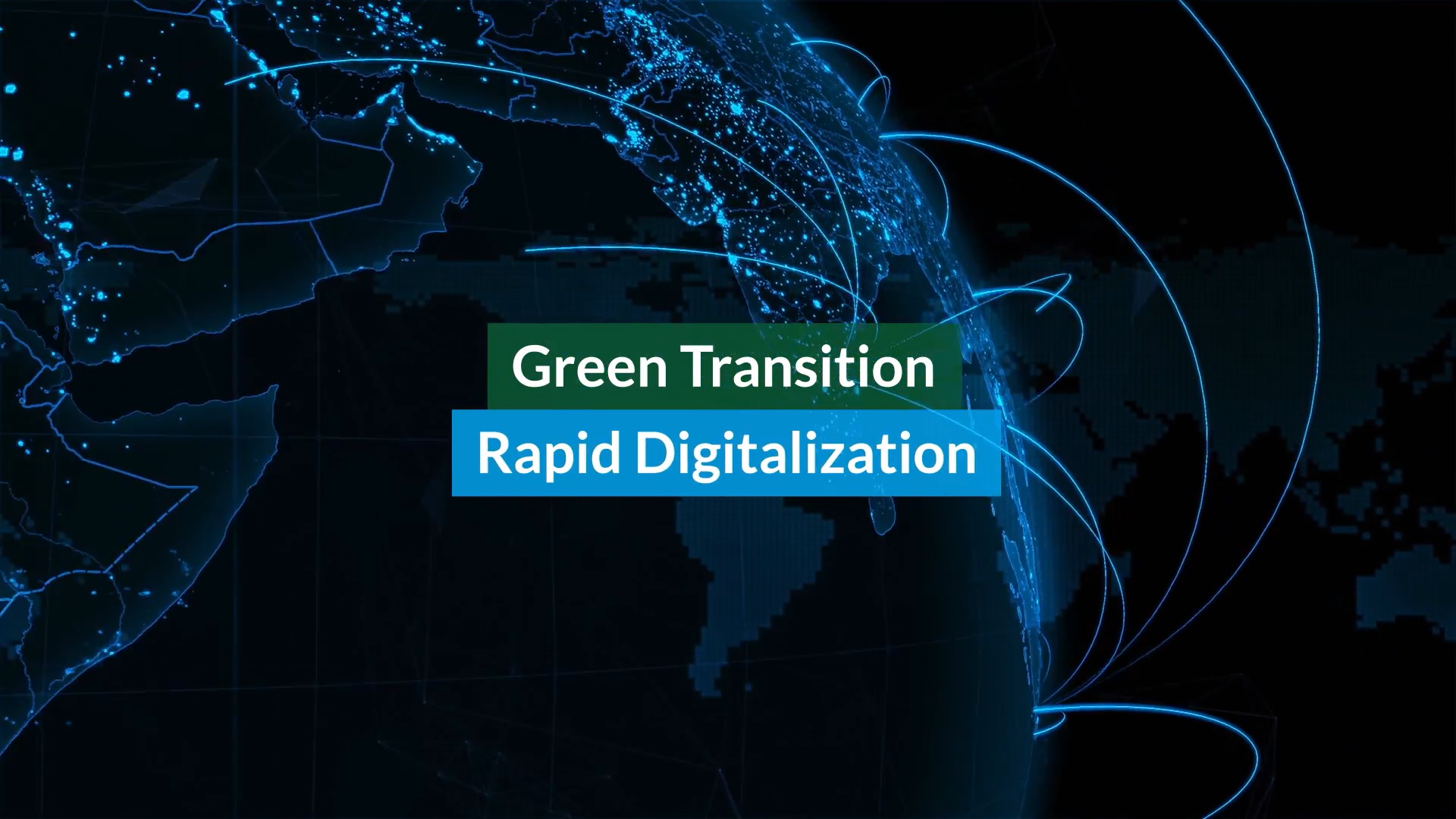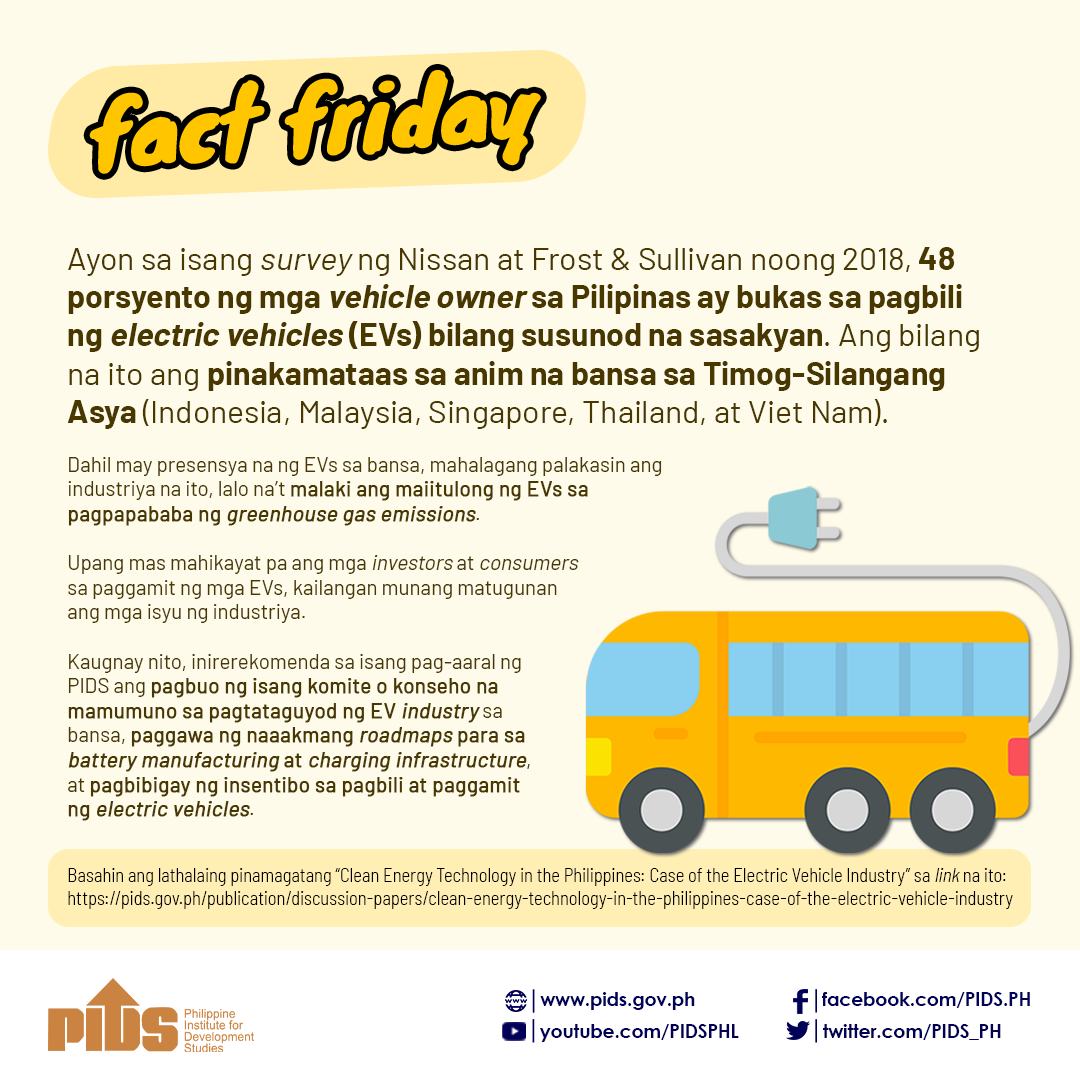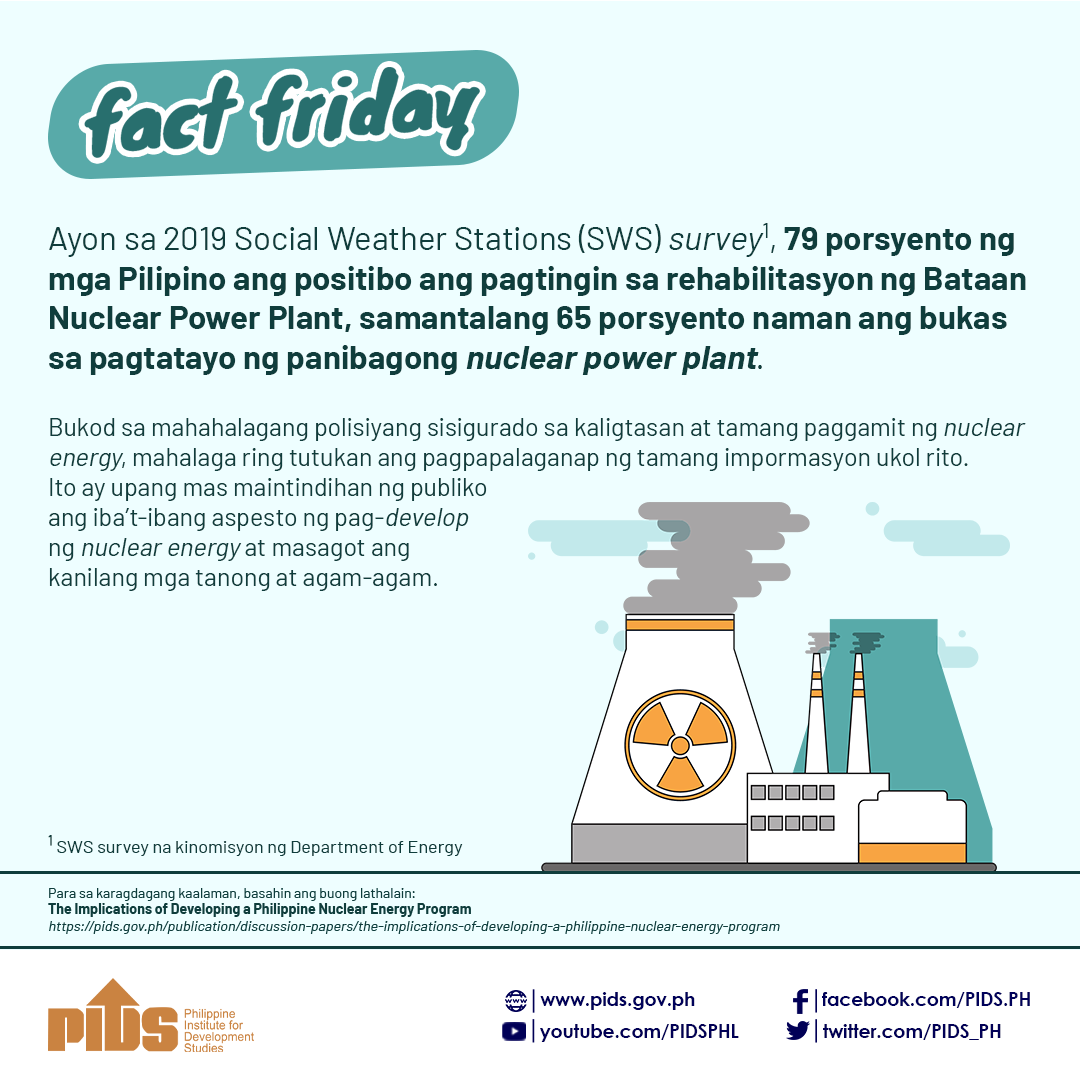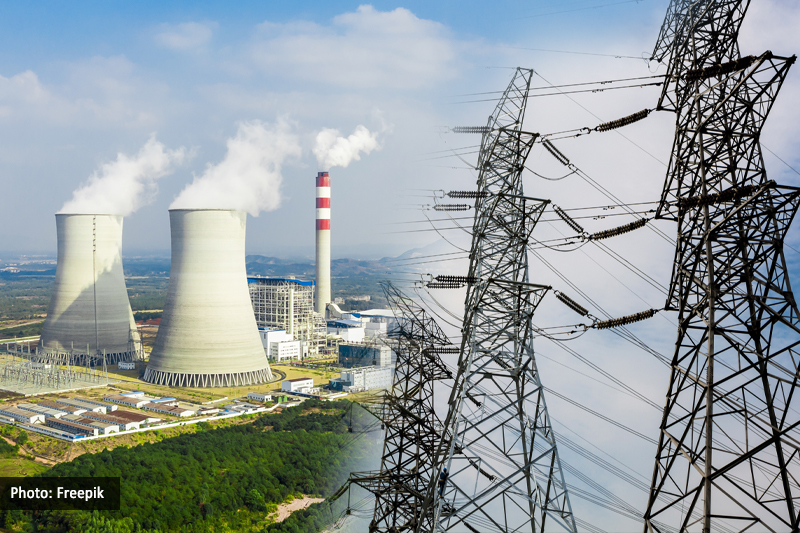
Resolving the persisting power disruptions requires huge investments in infrastructure and other alternative energy sources, said experts in a webinar recently organized by state think tank Philippine Institute for Development Studies (PIDS).
The webinar featured two PIDS studies titled “Electricity Supply Interruptions in the Philippines: Characteristics, Trends, Causes” by PIDS Research Fellow Kris Francisco and “The Implications of Developing a Philippine Nuclear Energy Program” by Senior Research Fellow Adoracion Navarro.
Francisco emphasized that power supply interruption affects the economic sector because most businesses’ critical infrastructures heavily rely on electricity. "When electricity supply is not continuously given to businesses, this affects their income. When business incomes are affected, it cascades down to their employees," she said.
The study analyzed the monthly interruption reports of electric cooperatives submitted to the National Electrification Administration (NEA). The reports revealed that the causes of electricity supply interruptions are broadly classified into environmental, supply, technical, and other issues. Environmental issues are considered the most critical cause among the four.
Francisco recommended prioritizing the climate-proofing of the power infrastructure, a significant investment that can be incorporated into the government's medium- to long-term plans.
She also stressed the need to provide assistance to and develop policies for electric cooperatives to increase their capacity and access to power supply, given their essential role in the energy sector.
Meanwhile, Navarro's presentation highlighted the significance of other energy sources, specifically nuclear energy, in addressing power supply problems.
She mentioned that despite some setbacks, the government sees nuclear energy as a promising option, and talks about reviving the Bataan Nuclear Power Plant have started.
However, Navarro cautioned that "should the Philippines commit to a nuclear energy program, it must be prepared for a period of 100 years from construction to decommissioning."
She recommended conducting a comprehensive assessment of a nuclear power plant's disaster risks and establishing clear protocols for its construction, decommissioning, and waste disposal or storage, consistent with the International Atomic Energy Agency’s Milestones Approach.
Aside from the huge costs a nuclear energy program requires, Navarro stated that updating current laws and ratifying international legal instruments remain the biggest hurdle to nuclear energy. She also explained that the Electric Power Industry Reform Act (EPIRA or Republic Act 9136) prohibits the government from engaging in power generation other than for missionary purposes; thus, the viability of various financing options needs to be reviewed. She added that the Philippines must update its legal frameworks before it can pursue nuclear energy development and regulation.
Navarro likewise emphasized that the country’s nuclear energy strategy, benefits, and risks must be effectively communicated to the public to allay fears and obtain widespread support.
Watch the webinar at https://fb.watch/kyLexV6qFq/ or https://youtu.be/kbxy2Xln5W8.
For more videos of PIDS events, go to https://www.pids.gov.ph/videos. ###

